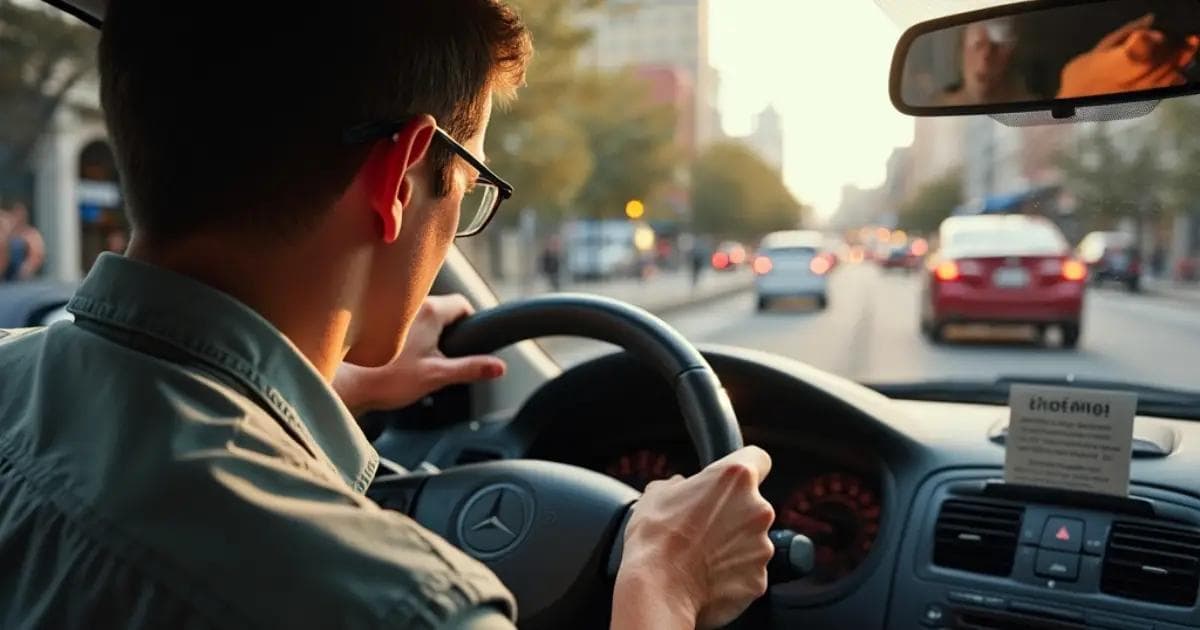What to Do If You Fail Your Driving Test in South Africa
Failing your driving test in South Africa can feel frustrating and disheartening, but it's not the end of the road—pun intended. Many people don’t pass on their first attempt, and the process is more about learning from your mistakes and preparing for success the next time. Today, we will provide actionable steps to take if you’ve failed your driving test in South Africa and help you stay motivated for your next try.
1. Don’t Be Discouraged—It’s Common!
First and foremost, understand that failing your driving test is more common than you think. Many drivers who are now confidently driving on the roads failed their tests multiple times before they succeeded. This experience can be disheartening, but it’s important to remember that it’s not a reflection of your future driving abilities.
Learn From the Experience
One of the most valuable things you can do after failing your driving test is to reflect on what went wrong. Was it a specific technical error like stalling on a hill or struggling with parallel parking? Perhaps the nerves got the better of you. Whatever the reason, identifying it will help you avoid the same mistakes in your next test.
Tip: If you're feeling unsure about what exactly went wrong, don’t hesitate to ask the examiner for feedback. Understanding where you lost points is key to improvement.
2. Address Common Testing Challenges
Many candidates fail because of nerves or misunderstanding some of the critical components of the K53 driving test. Let's break down some of the common areas where mistakes happen:
- Hill Start: One of the most common reasons for failure is stalling during a hill start. This requires precise clutch control and the use of the handbrake to prevent rolling back. If this was your issue, spend extra time practicing on inclines to build confidence.
- Parallel Parking: Another frequent challenge is parallel parking. It’s important to master the maneuver with your driving instructor or in a quiet space where you can practice. The K53 test expects precision.
- Time Management in the Yard: Sometimes candidates spend too long in the yard portion of the test. Make sure you practice the entire yard sequence so that you can complete it smoothly and within the allowed time.
For more advice on specific mistakes to avoid, check out our detailed article on the Top 10 Common Mistakes to Avoid in the K53 Driving Test. This guide highlights several common pitfalls and provides strategies to overcome them.
3. Don’t Let Nerves Get the Better of You
It’s normal to feel anxious during your driving test. Unfortunately, nerves can affect your performance and lead to mistakes you wouldn’t typically make during practice. Here are a few strategies to help manage test-day anxiety:
- Practice Until It Becomes Second Nature: The more familiar you are with the driving test procedures, the less anxious you’ll feel. Spend extra time with your driving instructor to ensure you know what to expect at every stage.
- Take Mock Tests: Ask your instructor to simulate the test conditions, complete with the pressure of following exact procedures and being scored. This can help desensitize you to the stress of the actual test.
- Breathe and Stay Focused: If you feel nervous during the test, take a moment to breathe and refocus. Don’t rush; maintain a calm and steady pace.
4. Book a Re-Test as Soon as Possible
In South Africa, booking another driving test can sometimes be frustrating due to the availability of test slots. The booking system can be time-consuming, especially with high demand in some areas. However, the sooner you rebook your test, the less time you will have to wait, and the fresher the experience will be in your mind.
Tip: Consider contacting a local driving school for assistance. Many driving schools can help you secure an earlier test date and prepare you through additional lessons tailored to your weaknesses.
5. Deal With Testing Day Frustrations
Many test-takers report that their driving examiners were particularly strict or unfriendly, which added to the stress of the day. Unfortunately, not all examiners are equally approachable, but it’s important not to let their demeanor affect your performance.
If you feel that you were unfairly treated, remain composed and simply focus on what you can control: improving your driving skills and passing the next test. Remember, each test is a new opportunity, and you only need to pass once!
Note: If you feel there was genuine misconduct during your test, such as bribery demands or unfair treatment, you can report this to your local licensing authority. Corruption in driving tests is an issue, and there are channels to ensure you have a fair chance.
6. Stay Positive and Keep Practicing
The key to passing your driving test after failing is persistence. Each time you practice, you’re getting closer to the point where driving becomes second nature. If possible, practice in a vehicle similar to the one you will use during the test. Mastering the specific controls, clutch, and braking system of the car you’ll be using can help prevent any surprises on the day.
Tip: Don’t inform too many people when your next test is scheduled. If you keep your test date to yourself, it reduces the pressure of having to explain a failed attempt to others.
7. Seek Support and Encouragement
Failing your test can be emotionally draining, especially when it feels like you’re making no progress. It’s crucial to surround yourself with supportive friends and family who understand the process. Many people have been in the same situation and can offer valuable encouragement. Keep your spirits up, and remember, it’s just a matter of time before you succeed.
8. Practical Tips for Your Next Test
- Use a Smaller Car: If you have the option, consider using a smaller vehicle for the test. Maneuvering a compact car can make parking, yard tasks, and general driving easier.
- Hill Start Mastery: Practice using your handbrake to gain better control during hill starts. Remember, it's all about finding the clutch bite point and managing the transition with the handbrake.
- Confidence on Test Day: When you’re confident, it shows in your driving. Examiners are trained to assess not only your technical skills but also your overall control and poise on the road.
Conclusion
Failing your driving test in South Africa is a temporary setback, not a permanent roadblock. Many people fail, but what sets successful drivers apart is their determination to keep practicing and trying again.
By identifying your weaknesses, working on them, and maintaining a positive mindset, you’ll be well on your way to earning your driving license.



